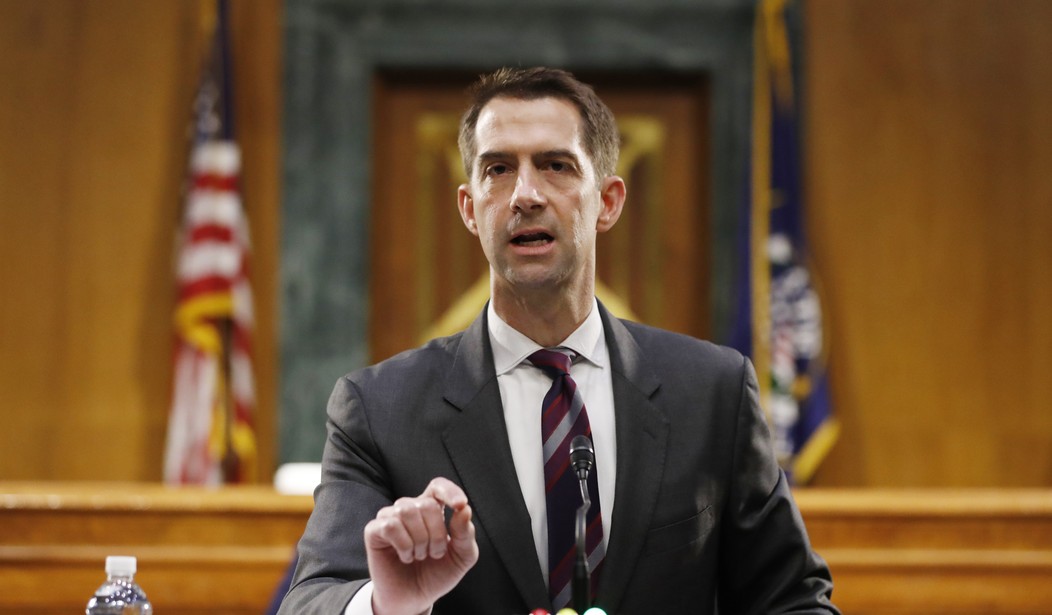Sen. Tom Cotton (R-Ark.) is targeting the bloated and politicized intelligence bureaucracy with a new bill to reform, streamline, and refocus the Office of the Director of National Intelligence (ODNI). Long criticized for its inefficiency and partisan bias, Cotton argued that ODNI has strayed from its core duty of protecting Americans from foreign threats, saying that his legislation would cut red tape, eliminate redundant layers, and reassert the ODNI’s original mandate, which is to coordinate intelligence.
Cotton, Chairman of the Senate Select Committee on Intelligence, introduced the Intelligence Community Efficiency and Effectiveness Act that would “realign resources to intelligence missions, eliminate duplicative efforts, and inefficient, non-functioning bureaucracies across the intelligence community (IC) and return the Office of the Director of National Intelligence (ODNI) to its original size, scope, and mission.”
“Created after the September 11th attacks, ODNI was intended to be a lean organization to align America’s intelligence resources and authorities, not the overstaffed and bureaucratic behemoth that it is today, where coordinators coordinate with other coordinators. These reforms will be vital to keeping our country safe from the wide range of threats that we continue to face,” Cotton said.
According to Cotton, the act would cap ODNI full-time staff at 650, eliminate certain reporting requirements and the transfer of personnel authorities, terminate the National Counterintelligence and Security Center (NCSC) at ODNI and transfer its responsibilities to the FBI, ban the use of National Intelligence Program funds to implement diversity, equity, or inclusion (DEI) programs in the intelligence community, among others.
The bill is co-sponsored by Jim Risch (R-Idaho), Mike Rounds (R-S.D.), Ted Budd (R-N.C.), and James Lankford (R-Okla.).
The ODNI was established in 2004 in the wake of the 9/11 attacks to coordinate the work of the United States’ broad intelligence community, which comprises 17 agencies, including the CIA, NSA, FBI, and military intelligence arms. The ODNI’s primary duty is to synthesize intelligence, reduce duplication, and ensure communication between agencies to prevent intelligence failures. However, many Republicans argue that it has exceeded its scope and created extensive bureaucracy, which has slowed its decision-making and efficiency.
Recommended
Some argue that the ODNI has abandoned its core mission and prioritized DEI initiatives over national security threats. Others claim the agency plays politics, citing the 2020 Hunter Biden laptop letter, signed by ex-intel officials, and specific declassified assessments about domestic extremism they believe unfairly target conservatives.

























Join the conversation as a VIP Member